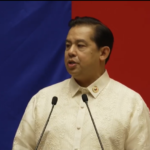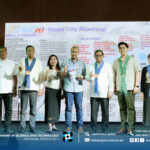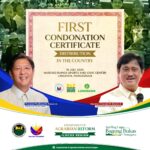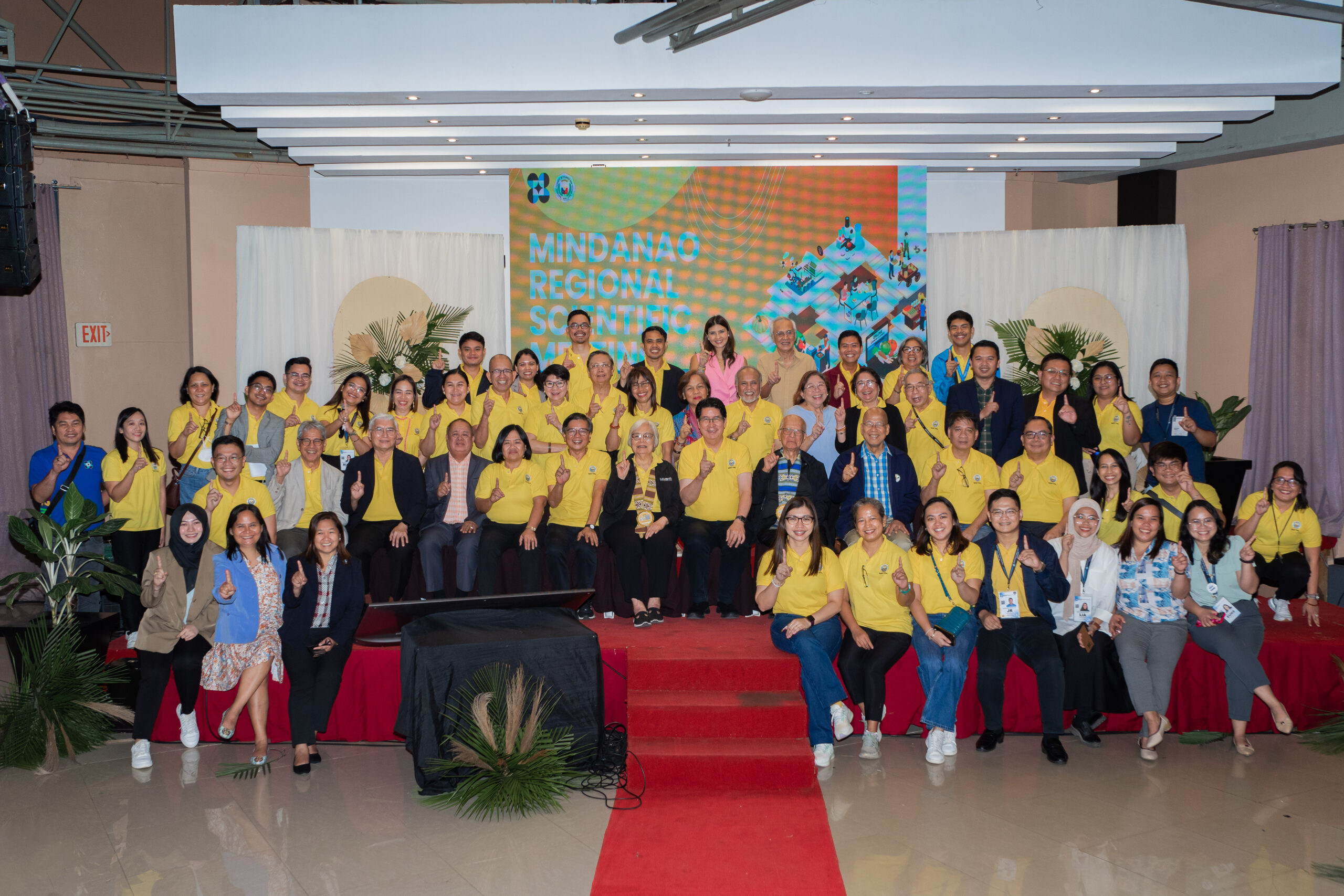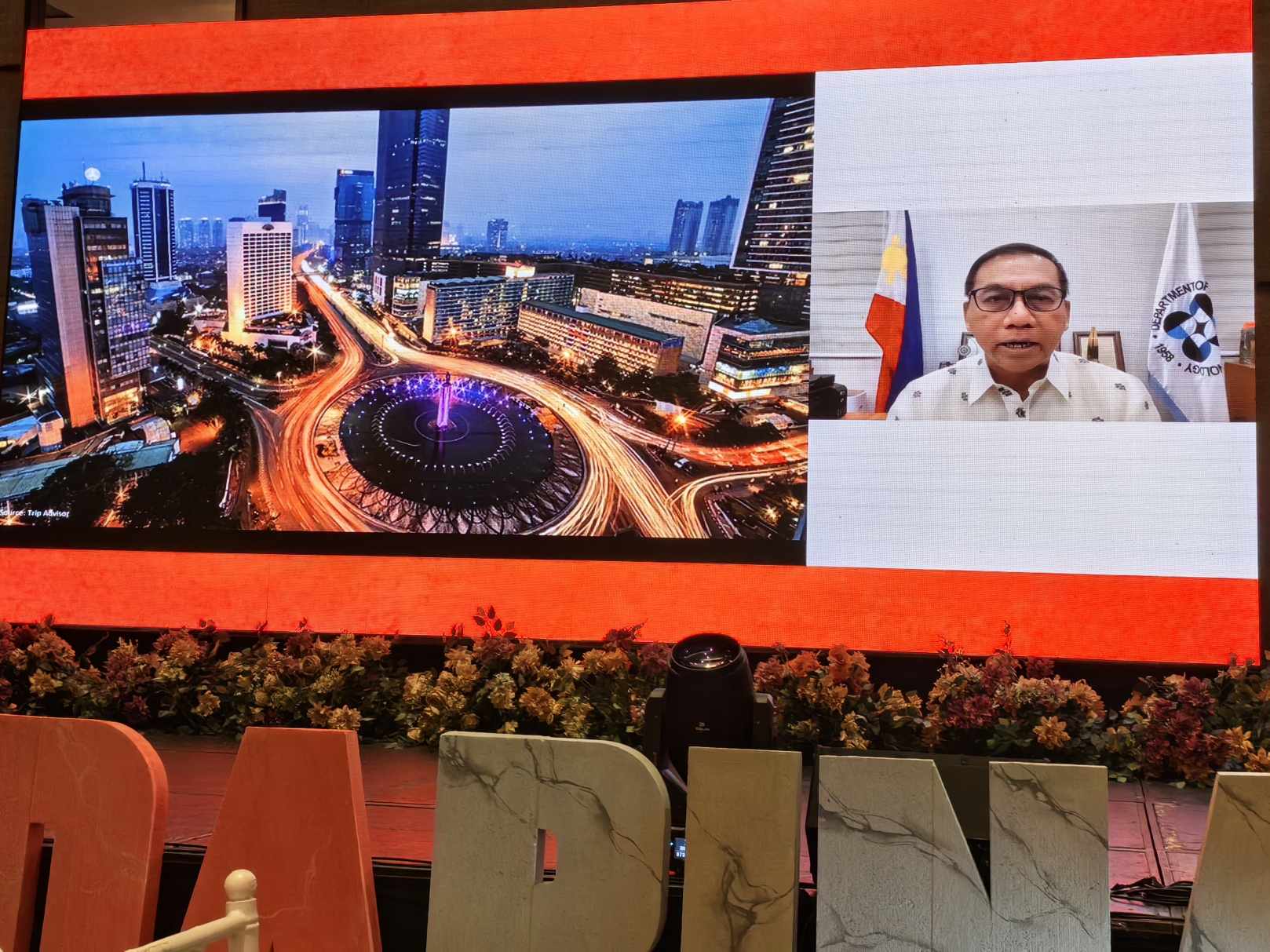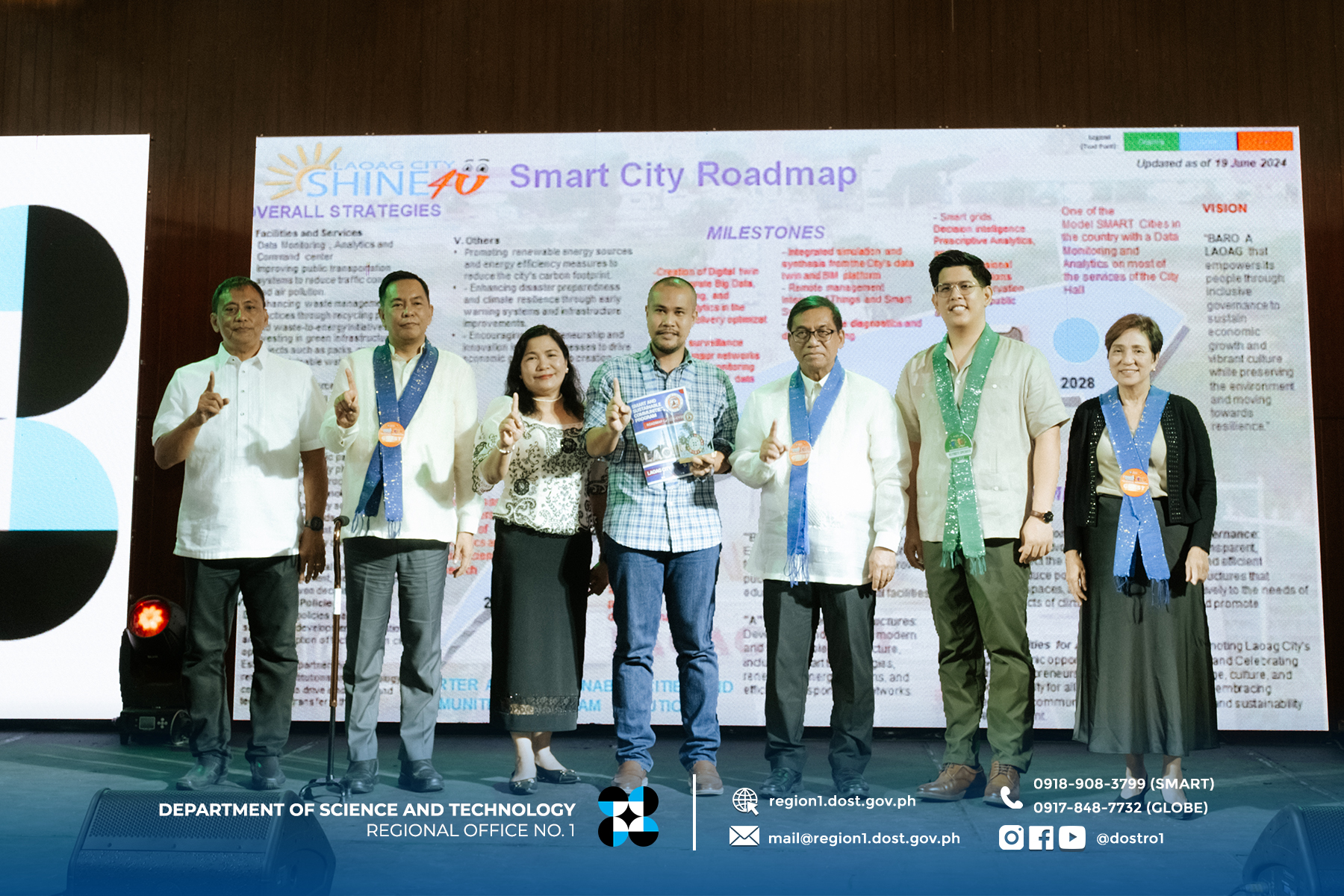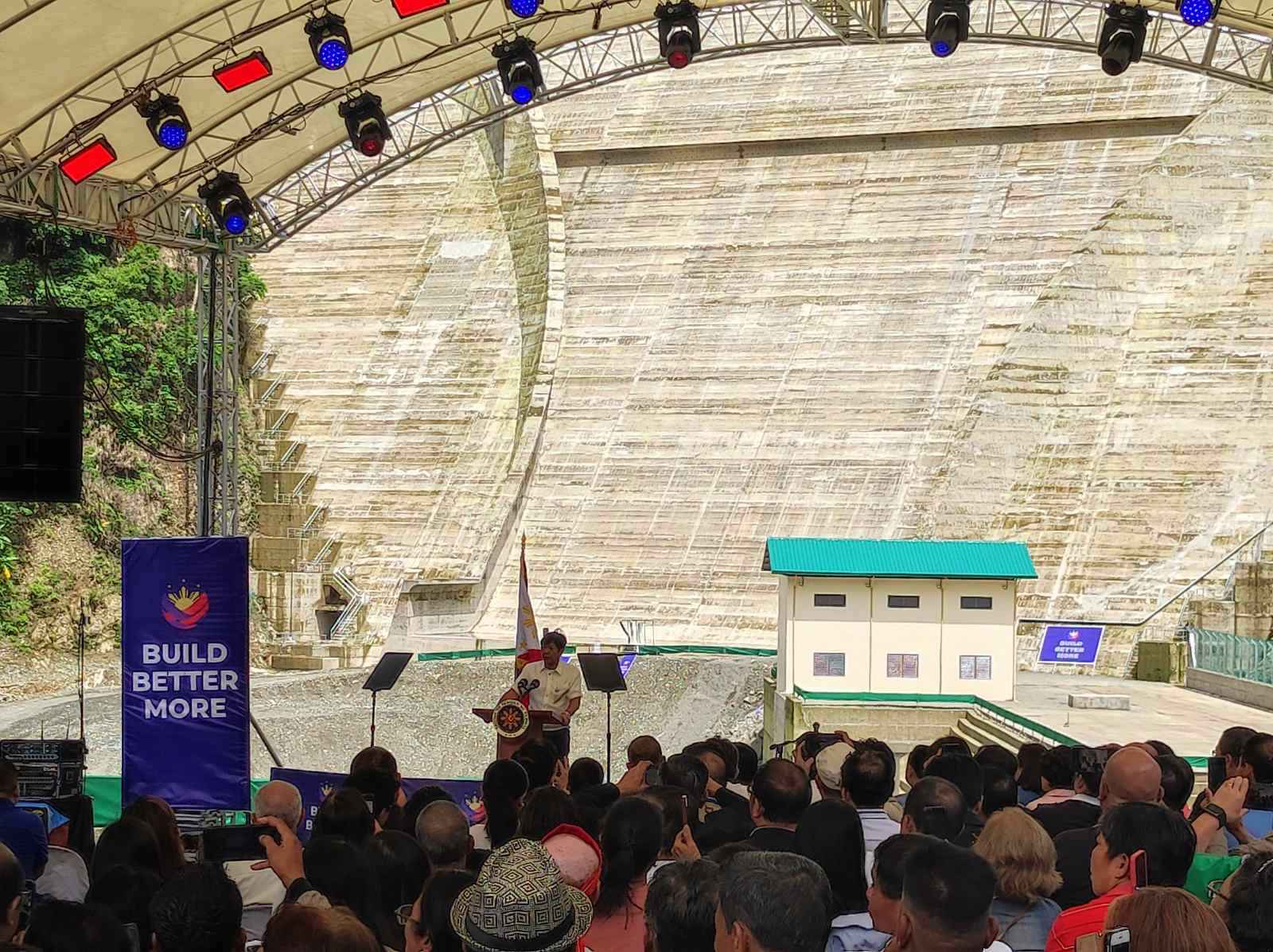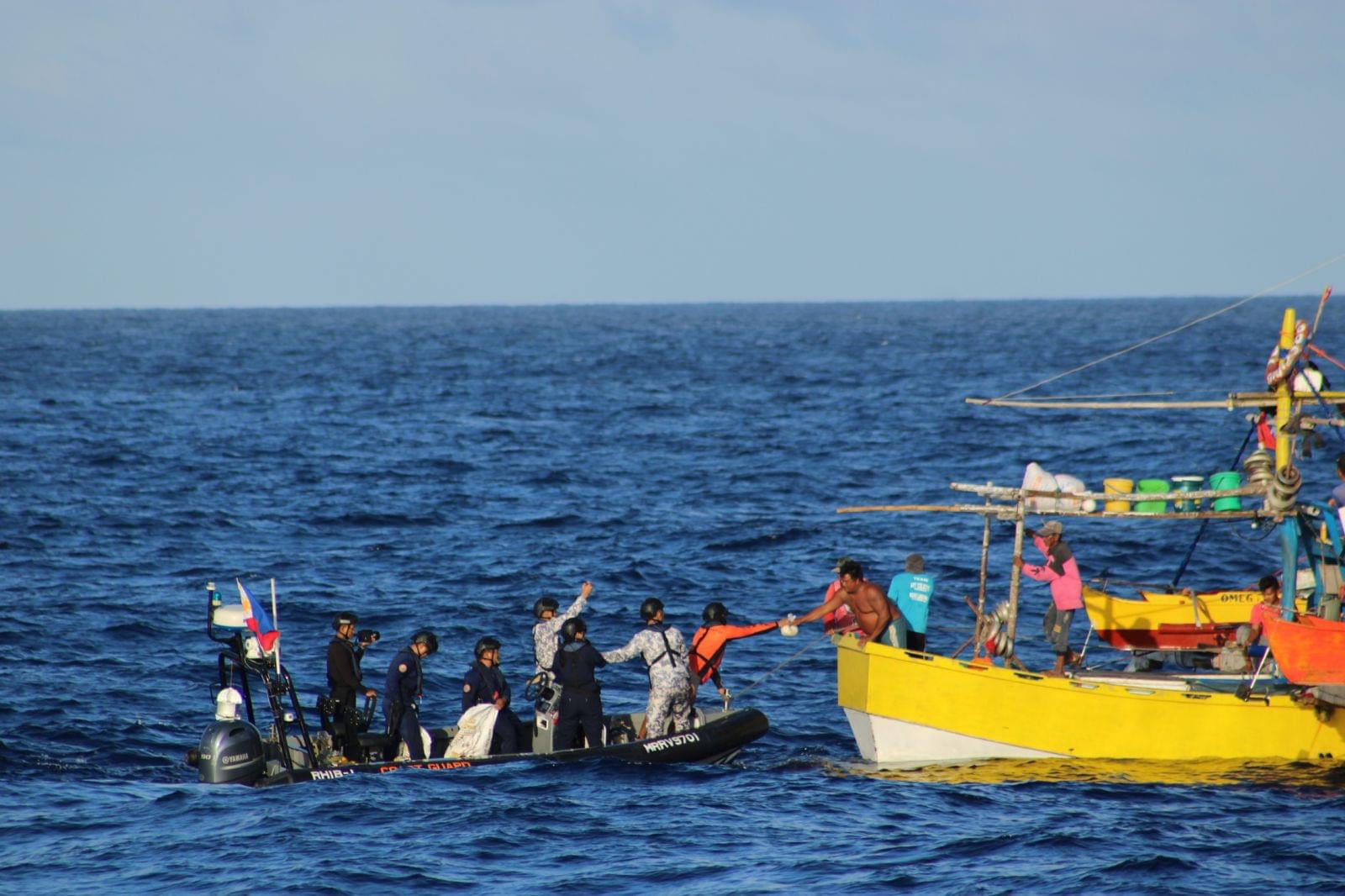The National Academy of Science and Technology – Philippines (NAST PHL), in cooperation with the regional offices of DOST in Mindanao organized the Mindanao Regional Scientific Meeting (MRSM) 2024 on May 08-09, 2024 at the Mallberry Suites Business Hotel, Cagayan de Oro City.
With the theme, “Beyond Farm Productivity: Transforming the Philippine Food System to Address Equity, Consumer Health, and Environmental Issues,” the event was an avenue for scientific discussions to address the challenges on equity, consumer health, and environmental issues, particularly those that are effects of the highly commercialized food systems today.
“This year’s theme motivates the need to decentralize mechanisms implemented in the status quo to improve farm productivity and achieve agricultural and rural development,” said Academician Jaime C. Montoya, president of NAST PHL, in his opening remarks, on behalf of the Regional Development Council -X, Engr. Elpidio M. Paras, Co-Chairperson, delivered a message of support. He said, “Today, we’re here to figure out why this is (the challenges in the food systems) happening and hear ideas on how to fix it. I’m eager to hear from our experts about what we can do to catch up and make things better. Their recommendations are based on well-grounded research.”
At the opening ceremonies, Engr. Romela N. Ratilla, the regional director of DOST X, presented the various projects and programs implemented by the DOST Mindanao Cluster, highlighting projects related to the theme. She said the DOST Mindanao Regional Offices have supported 908 micro-, small, and medium enterprises (MSMEs) and 474 communities for the past five years.
In line with the theme, DOST 9 implemented a project to empower the local community through Science and Technology in Balagon, Siay Zamboanga Sibugay, by providing rice and corn facilities to support the area’s agri-based production and boost their income generation.
DOST 10, through the Small Enterprise Technology Upgrading Program (SETUP), supported the enterprise of J&C Balut Maker of Iligan City by adopting the Itik Pinas Technology of DOST-PCAARRD and upgrading its balut hatchery production through a semi-automated duck setter, and duck hatcher. This intervention increased live duck production by 210% and balut egg production by 204%. The gross sales increased by 109.18% and Net Revenue by 119.4%. J&C also increased its market reach from 3 to 5 provinces, increasing employment from 11 to 19 personnel.
DOST 11 also mainstreamed Science and Technology in its project implementations to address challenges of the food system in their region. Through its Collaborative Research and Development to Leverage the Philippine Economy (CRADLE) of the Science for Change Program (S4CP), Belviz Farm, Rosario’s Delicacy, D’Farmers Market, VJT Enterprises, and Eng Seng Products was able to utilize Artificial Intelligence in the ongoing development of high-quality durian using DuDONG or Durian Desktop Operated Non-Invasive Grading System and INDAI or Inspection of Durian Using AI Projects.
Technology upgrading interventions were also spearheaded by DOST 12 in the production of Tuna products. These interventions helped increase production by 40% in the first year of implementation.
DOST Caraga also implemented a local GIA project to boost food innovation by upgrading Food Innovation Centers. The region has established a total of five Food Innovation Centers in partner SUCs and has established a Regional Sensory Testing Facility. This project developed 40 functional food products that utilized indigenous raw materials and provided 70 MSMEs with technical consultancy.
The Ministry of Science and Technology – Bangsamoro Autonomous Region in Muslim Mindanao (MOST – BARMM) also established a project to develop a pelletized Halal feed supplement for weanling goats. This project helped local goat raisers in Tawi-tawi secure low-cost pelletized halal feed supplements that benefit the local farmers.
The Mindanao Regional Scientific Meeting features a series of plenary sessions. Each of the five sessions delivered a different theme consistent with the trends, challenges, and ways forward of the food system in the country.

The first plenary session had a theme titled “Impact of the food system on farmer and fisherfolk income and environment under two contrasting scenarios: Business as Usual and the transformed food system.” Academician Ernesto J. Del Rosario gave an update on the Philippine Seaweed Industry, and Dr. Lilian C. Garcia from the National Fisheries Research and Development Institute shared some strategies for the sustainable management of Migratory Tuna stocks. Dr. Sitti Zayda B. Halun from Mindanao State University Tawi-tawi – College of Technology and Oceanography and Dr. Romiel John P. Basan from the University of Southern Mindanao were invited as discussants to share insights about their studies related to the theme.
The topic for the second plenary session was the food system’s impact on consumer health and nutrition. Dr. Cecilia Cristina S. Acuin from the University of the Philippines Los Baños shared the importance of transforming the food system in the country to accelerate the progress of the 2030 agenda and Sustainable Development Goals (SDGs) to end hunger, improve diets, and protect ecologies. Dr. Imelda Angeles-Agdeppa also shared the possible access points for actions on the Philippine Food Systems on Health and Nutrition situations. Dr. Jess H. Jumawan and Dr. Albert Remus R. Rosana were the discussants from Mindanao.
On Day 2, Plenary Session 3, the resource speakers discussed space technology and relevant Fourth Industrial Revolution technologies that can transform food systems. Dr. Ralph G. Turingan from the Florida Institute of Technology discussed the emerging Blue Economy. Dr. Ariel C. Blanco and Dr. Argel A. Bandala were among the invited speakers of the session, with Mr. Bernardino J. Buenaobra from Del Monte Philippines, Inc. as a discussant from Mindanao.
The fourth plenary session focused on the role of digital and food technology in transforming the food system. The resource speakers were Dr. Noel S. Gunay from Mindanao State University General Santos, Prof Antonio Vicente Pijano of FIC-Davao, and Ms. Ana GM B. Abejuela.
The last plenary session targeted answering the question, “How can data and positive values guide consumer decision-making?” Prof. Nygiel Armada from the USAID – Fish Rights Program shared his take on Ecosystems Improved for Sustainable Fisheries, and Ms. Juana Manahan-Yupangco, the Founder of Mesa ni Misis, shared how data-driven results can help shed information for healthy, sustainable, and affordable dietary changes. Dr. Raquel D. Santiago-Arenas from the Mindanao State University Maguindanao and Dr. Ma-Ann M. Camarin from the Mindanao State University – Marawi were also invited as discussants.
The event also included a Scientific Poster Presentation of 15 scientific studies conducted by researchers from different universities, colleges, and research institutions all over Mindanao.
Nouran M. Usman, Earl Ryan M. Aleluya, Steve E. Clar, Francis Jann A. Alagon, and Carl John O. Salaan of Mindanao State University – Iligan Institute of Technology (MSU-IIT) received the best scientific paper award for their study titled, “AI-based Precise Vegetation Index Calculation for Variable Flow Rate Spraying Drones”
The second place was awarded to Oliver Michael C. Narreto and Rosalina P. Tan from Central Mindanao University for their study titled. “Productivity Factors, Technical Efficiency, and Climate Change Adaptation Strategies of Corn Farming in Bukidnon, Philippines” While 3rd place was awarded to Dr. Ronald P. Bual, Marionilo B. Labares Jr., Kit Dominick Don U. Valle, Princess Grace G. Ducao, Zesreal Cain V. Bantilan, Johnel B. Alimasag, Elizer B. Eleccion, and Celine S. Pimentel from MSU – IIT in their study titled, “A Sustainable Strategy for Fish Processing Waste Upcycling: Extraction of Collagen from Milkfish Heads and Viscera”
Academician Fabian M. Dayrit, Chair of the Mindanao RSM Resolutions Committee presented the resolutions to the delegates of the MRSM that were enlisted and agreed during the two-day sessions and forums.
The MRSM will endorse the resolutions in the upcoming Annual Scientific Meeting and to the Regional Development Council to implement policies aligned to the discussions to address the challenges in our food system.
Ms. Almer R. Masillones, the ARD of the Department of Trade and Industry – X , delivered her response to the resolution presented, stating, “As a national agency and member of the Regional Development Council – X, the Department of Trade and Industry Region 10 is one withf the National Academy of Science and Technology in working for the progressive Philippines anchored on Science and Technology.”
In a ceremonial turnover, the host of the 2025 Mindanao Regional Scientific Meeting host will be DOST 12 SOCCSKSARGEN. DOST-12 Director, Engr Sammy P. Malawan delivered the closing message with an invitation to the next MRSM. (Joshua Robin/DOST10)





